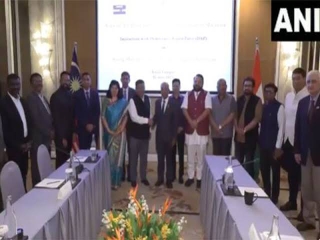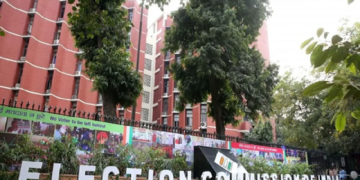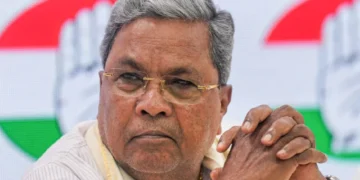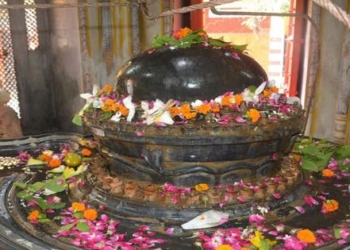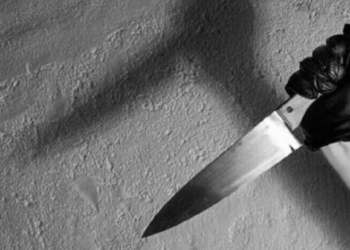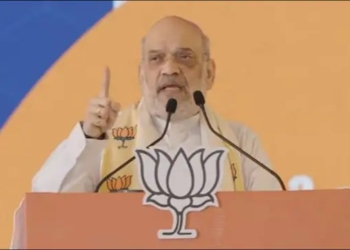The all -party parliamentary delegation, who visited Malaysia, insisted on India’s policy not to tolerate terrorism, saying “water and blood cannot flow together.” The Indian High Commission in Kuala Lumpur gave this information on Monday.
The High Commission reported in a post on ‘X’ that the Indian delegation led by Janata Dal United (JDU) MP Sanjay Kumar Jha met representatives of the Democratic Action Party, led by Deputy Minister YB M. Kula Segaran in the Department of Law and Institutional Reforms, and members of the party Kedilan Rakyat in Malaysia. During this time he was made aware of India’s attitude and national resolution against terrorism.
According to the post, “Discussion ‘was focused on India’s strong response against terrorism under Operation’ Operation Sindoor ‘. India’s policy of not tolerating terrorism was emphasized and it was clarified that water and blood could not flow together.”
This reaction of the delegation was in connection with the postponement of India’s Indus Water Treaty after the Pahalgam terrorist attack. New Delhi has bluntly said that the treaty will remain postponed until Pakistan stops instigating terrorism.
The Treaty, which took place in 1960 in the World Bank’s mediation, defines the Sindhu and its five tributaries for the use of water sharing and exchange of information between the two nuclear-powered countries for the use of water of the Indus and its five tributaries-Ladies, Vyas, Ravi, Jhelum and Chenab.
The High Commission reported that the parliamentary delegation had “creative talks” with a delegation of YB SIM Tajin -led party Kedilan Rakyat.
He posted, “India’s policy of not tolerating terrorism was underlined and our national unity was confirmed against cross -border threats.”
The High Commission said, “The delegates of the Kedilan appreciated the detailed explanation given by the delegation and made a creative discussion on the path ahead in the fight against terrorism and the responsibilities of every nation.”
According to the High Commission, the parliamentary delegation also interacted with Deputy Minister YB Saraswati Kandasamy for national unity during a meeting with party Kedilan Rakyat.
According to a statement, the delegation underlined India’s principle and stagnant attitude of not tolerating all the forms and expressions of terrorism.
According to the statement, in a conversation with the overseas Indian community here, the delegation referred to India’s firm stand against cross -border terrorism and emphasized that ‘Operation Sindoor’ was a demonstration of India’s right to respond to and thwart terrorist attacks in future.
The statement said that all the diaspora including Malaysian Muslims of Indian origin clearly condemned terrorism.
It states that the parliamentary delegation visited the Ramakrishna Mission in Kuala Lumpur and laid a wreath at the statue of Swami Vivekananda.
According to the statement, the delegation also visited the Panchwati prayer room and Nivedita House.
It also states that the Parliamentary delegation also interacted with the 15 -member delegation of the National Defense College (NDC), New Delhi, who is currently on a study tour of Malaysia.
According to the statement, the parliamentary delegation also visited the toran gate, which is a gift given by the people of India to Malaysia. It was inaugurated in 2015 during Prime Minister Narendra Modi’s visit to Malaysia.
The Indian High Commission said that the toran gate located in ‘Little India’ in Kuala Lumpur is a symbol of not only Ekta, but a strong and frequent friendship between India and Malaysia.
Apart from Jha, the delegation included MP Aparajita Sarangi, Abhishek Banerjee, Brij Lal, John Britas, Dosa Barua, Hemang Joshi, former Foreign Minister Salman Khurshid and former Ambassador Mohan Kumar.
The delegation is one of the seven multi -party parliamentary delegations that India have tasked to highlight Pakistan’s relations with terrorism by traveling to the capital of 33 countries of the world.

